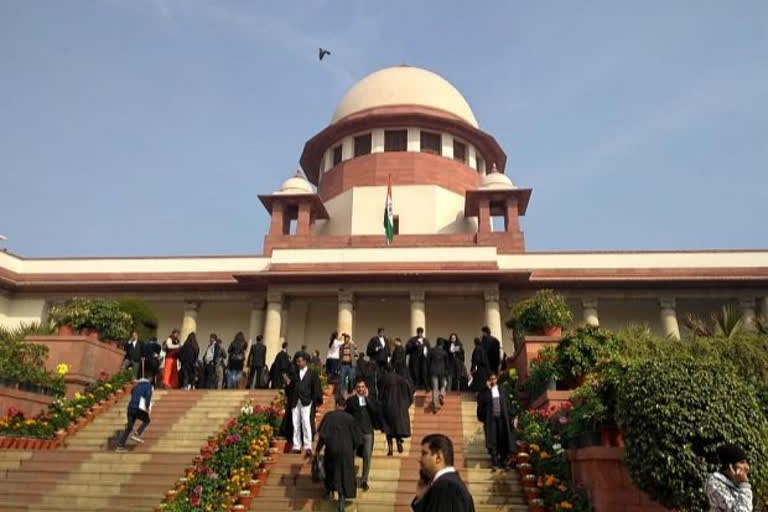New Delhi: The protracted hearing in the politically sensitive Ram Janmbhoomi-Babri Masjid land dispute at Ayodhya will enter into the crucial final leg on Monday when the Supreme Court resumes proceedings on the 38th day after the week-long Dussehra break.
A five-judge Constitution bench headed by Chief Justice of India Ranjan Gogoi, which started the day-to-day proceedings on August 6 after mediation proceedings failed to find an amicable solution to the vexatious dispute, has revised the deadline for wrapping up the proceedings and has fixed it on October 17.
Fourteen appeals have been filed in the apex court against the 2010 Allahabad High Court judgment, delivered in four civil suits, that the 2.77-acre land in Ayodhya is partitioned equally among the three parties -- the Sunni Waqf Board, the Nirmohi Akhara and Ram Lalla.
Initially, as many as five lawsuits were filed in the lower court. The first one was filed by Gopal Singh Visharad, a devotee of 'Ram Lalla', in 1950 to seek enforcement of the right to worship of Hindus at the disputed site.
In the same year, the Paramahansa Ramachandra Das had also filed the lawsuit for the continuation of worship and keeping the idols under the central dome of the now-demolished disputed structure.
The plea was later withdrawn.
Later, the Nirmohi Akhara also moved the trial court in 1959 seeking management and 'shebaiti' (devotee) rights over the 2.77 acres disputed land.
Then came the lawsuit of the Uttar Pradesh Sunni Central Wakf Board which moved the court in 1961, claiming title right over the disputed property.
The deity, 'Ram Lalla Virajman' through next friend and former Allahabad High Court judge Deoki Nandan Agrawal, and the Janambhoomi (the birthplace) moved the lawsuit in 1989, seeking title right over the entire disputed property on the key ground that the land itself has the character of the deity and a 'Juristic entity'.
Later, all the lawsuits were transferred to the Allahabad High Court for adjudication following the demolition of the disputed Ram Janambhoomi-Babri masjid structure on December 6, 1992, sparking communal riots in the country.
Earlier, the bench, also comprising justices S A Bobde, D Y Chandrachud, Ashok Bhushan and S A Nazeer, had said it would wrap up the hearing by October 17, a day sooner than the earlier schedule.
Fixing the schedule for the final leg of the lengthy arguments, it had said that the Muslim side would complete the arguments on October 14 and thereafter, two days would be granted to the Hindu parties, to sum up, their rejoinders by October 16.
October 17 would be the last day for wrapping up the hearing when the parties will have to make the final arguments about the relief they are seeking, the court had said. The bench had earlier fixed the deadline of October 18 to conclude the hearing.
The judgment in the matter is to be pronounced by November 17, the day the Chief Justice of India will demit the office.
The apex court had on August 6 commenced day-to-day proceedings in the case as the mediation proceedings initiated to find the amicable resolution had failed.
It had taken note of the report of the three-member panel, comprising Justice FMI Kallifulla, spiritual guru and founder of the Art of Living Foundation Sri Sri Ravishankar and senior advocate and renowned mediator Sriram Panchu, that mediation proceedings, which went on for about four months, did not result in any final settlement and it had to decide the matter pending before it.
Also read: Haryana polls: INLD promises farm loan waiver; MSP with 50% profit



